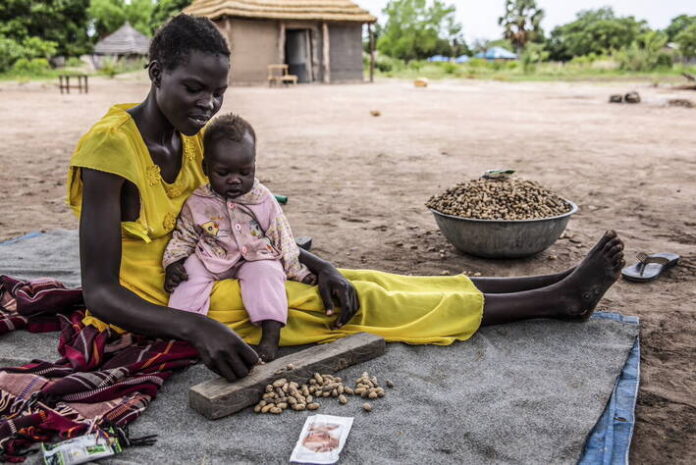WFP warns 64.7m Nigerians on the brink of starvation
By Jeph Ajobaju, Chief Copy Editor
Some 64.7 million Nigerians (32 per cent of the population) lack sufficient food to keep body and soul well together, according to the World Food Programme (WFP), an arm of the United Nations.
WFP said170 million people do not have sufficient food to eat across 19 countries in its latest ‘HungerMapLIVE: Western Africa insights and key trends’.
Countries with the highest prevalence of insufficient food are Niger, Mali, Burkina Faso, Guinea, Chad, Sierra Leone, Cameroon, Liberia, Central African Republic, Togo, Guinea Bissau, Nigeria.
The World Bank also disclosed food insufficiency in Nigeria rose from 29 per cent to 32 per cent over the past three months, and overall food and nutrition situation in Nigeria and other West African countries is challenging for a large share of their populations.
__________________________________________________________________
Related articles:
Nigeria acknowledges its highest malnutrition rate in Africa
Malnutrition kills 2,400 children every day in Nigeria
UNICEF picks holes in Nigeria’s childcare indicators
________________________________________________________________
Countries with severest prevalence of food insufficiency
“The countries with the highest prevalence of insufficient food consumption in the order of severity are Niger (18.2 million people, 81 per cent of the population), Mali (13.9 million, 73 per cent), Burkina Faso (13 million, 66 per cent), Guinea (7.7 million, 62 per cent),” the World Bank said, quoting WFP, per The PUNCH.
“Chad (9.2 million, 57 per cent), Sierra Leone (4.4 million, 53 per cent), Cameroon (10.2 million, 40 per cent), Liberia (1.7 million, 38 per cent), Central African Republic (1.6 million, 35 per cent), Togo (2.7 million, 34 per cent), Guinea-Bissau (0.6 million, 34 per cent), and Nigeria (64.7 million, 32 per cent).”
The World Bank defines insufficient food consumption as poor or borderline food consumption as determined according to Food Consumption Score, and it is different from food insecurity.
The bank said food insecurity in West Africa is expected to worsen as the dry season progresses in the months ahead.
It noted while domestic food price inflation remains high, it is particularly bad in Africa, North America, Latin America, South Asia, Europe, and Central Asia.













